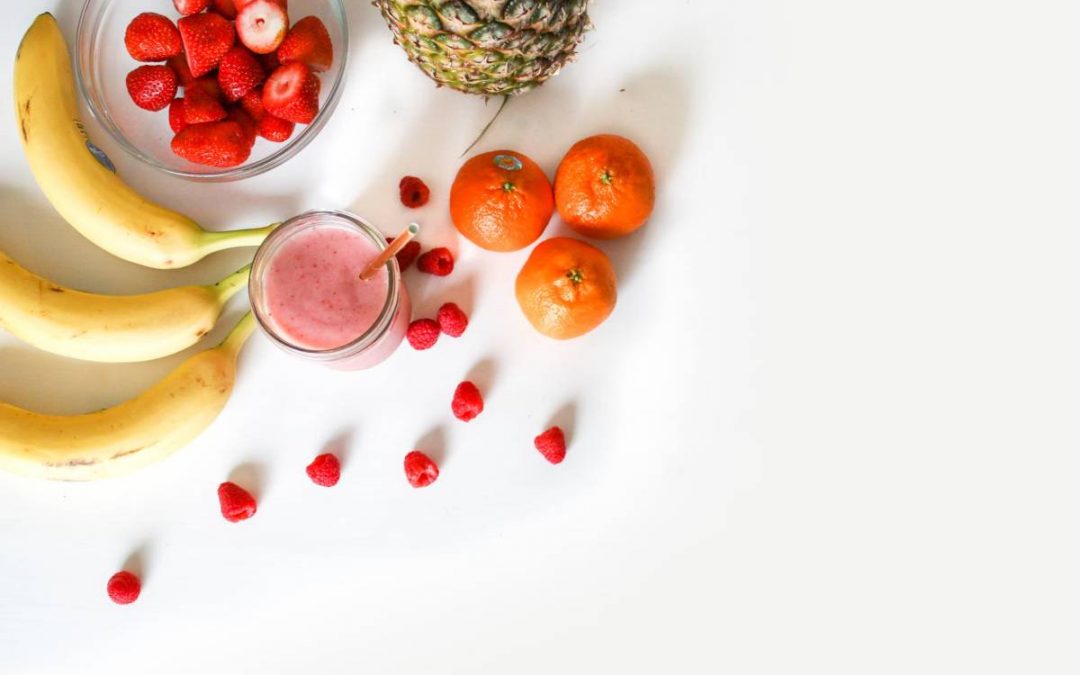In today’s environmentally conscious world, you can make a significant impact by choosing zero-waste vitamins and supplements. This guide will help you navigate the world of sustainable nutrition while minimizing your environmental footprint.
Understanding Zero-Waste Vitamins
Zero-waste vitamins are supplements that come in packaging that is either recyclable, compostable, or reusable. By choosing these options, you can minimize your environmental impact while still getting the nutrients you need.
Essential Nutrients and Plant-Based Sources
Before turning to supplements, consider incorporating more nutrient-dense foods into your diet.
The nutrient content of fruits, nuts, and vegetables varies depending on the soil they’re grown on and irrigation and fertilization practices. Finally, absorption is affected by the way foods are prepared.
Everyone’s needs are different, but usually, getting plant-based nutrients from whole foods is the best option.
Note: Some people need supplements no matter what they eat. Common examples include vitamin D2 from yeast or Vitamin D3 from lichen, fortified nut and seed milk, and phosphorus.
Here’s an expanded table of plant-based sources for various essential nutrients, including their recommended daily intake:
Zero Waste, Vegan, Plant-Based Nutrient Sources
| Nutrient | Plant-Based Sources | Daily Recommended Intake (Adults) |
|---|---|---|
| Vitamin B12 | Nutritional yeast, fortified plant milk, fortified cereals | 2.4 μg |
| Vitamin D | Mushrooms exposed to sunlight, fortified plant milk, fortified orange juice | 15-20 μg (600-800 IU) |
| Iron | Lentils, spinach, tofu, quinoa, pumpkin seeds | 8-18 mg |
| Calcium | Kale, broccoli, fortified plant milk, almonds, chia seeds | 1000-1200 mg |
| Omega-3 | Flaxseeds, chia seeds, walnuts, hemp seeds | 1.1-1.6 g |
| Zinc | Pumpkin seeds, chickpeas, cashews, oatmeal | 8-11 mg |
| Iodine | Seaweed (nori, wakame), iodized salt | 150 μg |
| Protein | Legumes, nuts, seeds, whole grains, tofu, tempeh | 46-56 g |
| Vitamin A | Sweet potatoes, carrots, spinach, kale | 700-900 μg |
| Vitamin C | Bell peppers, citrus fruits, strawberries, broccoli | 65-90 mg |
| Vitamin E | Sunflower seeds, almonds, avocado, spinach | 15 mg |
| Magnesium | Spinach, black beans, almonds, pumpkin seeds | 310-420 mg |
| Potassium | Bananas, sweet potatoes, beans, leafy greens | 2600-3400 mg |
| Folate | Leafy greens, legumes, asparagus, avocado | 400 μg |
| Selenium | Brazil nuts, whole grains, mushrooms, sunflower seeds | 55 μg |
Sources: Harvard, American College of Lifestyle Medicine, National Library of Medicine
Plastic-Free Vitamin Options
When supplementation is necessary, consider these plastic-free options:
Igennus Multivitamin & Minerals for Women
This multivitamin provides enhanced support for energy, immunity, hormone balance and mood in women of menstruating age through its high potency formula with boosted levels of iron, B-vitamins, vitamin D and zinc in balanced ratios. The sustained release delivery optimizes nutrient absorption throughout the day.
Size: 60 tablets
Dosage: 2 tablets daily
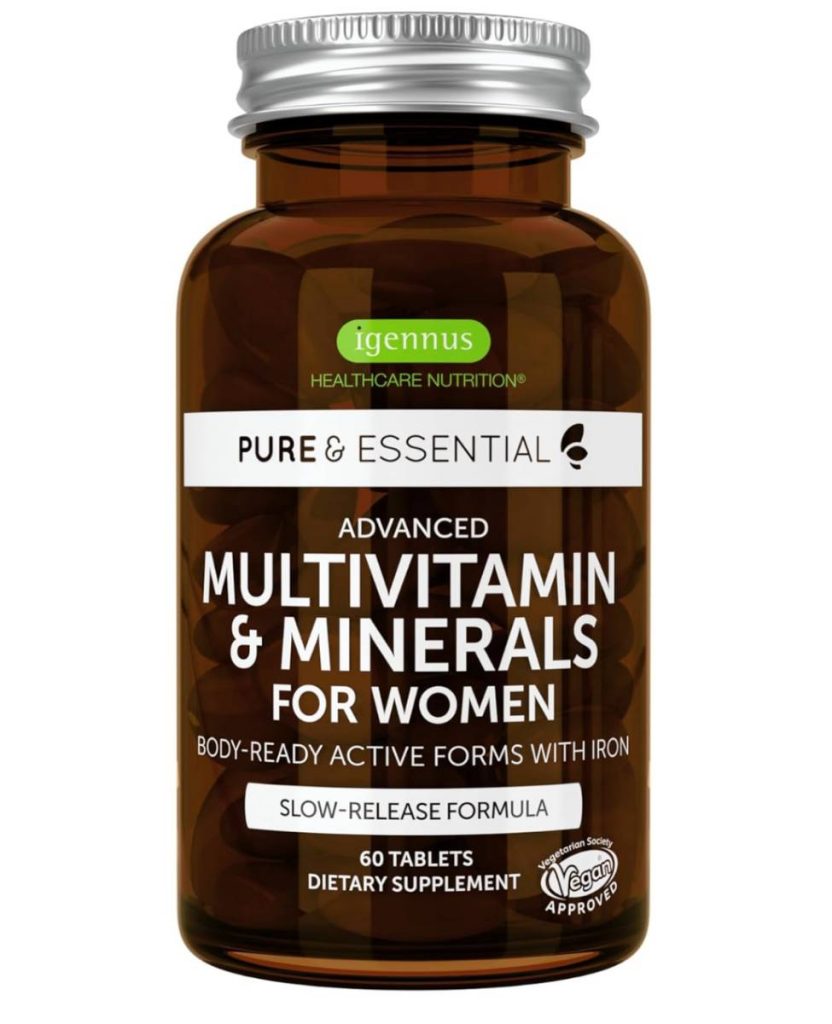
Habit + Habitat Hair, Skin & Nails Support Gummies
These vegan collagen-boosting gummies come in a reusable aluminum tin, making them a plastic-free option. The formula includes biotin, vitamins C and E, and bamboo extract to support hair, skin, and nail health.
Size: 60 gummies
Dosage: 2 gummies daily
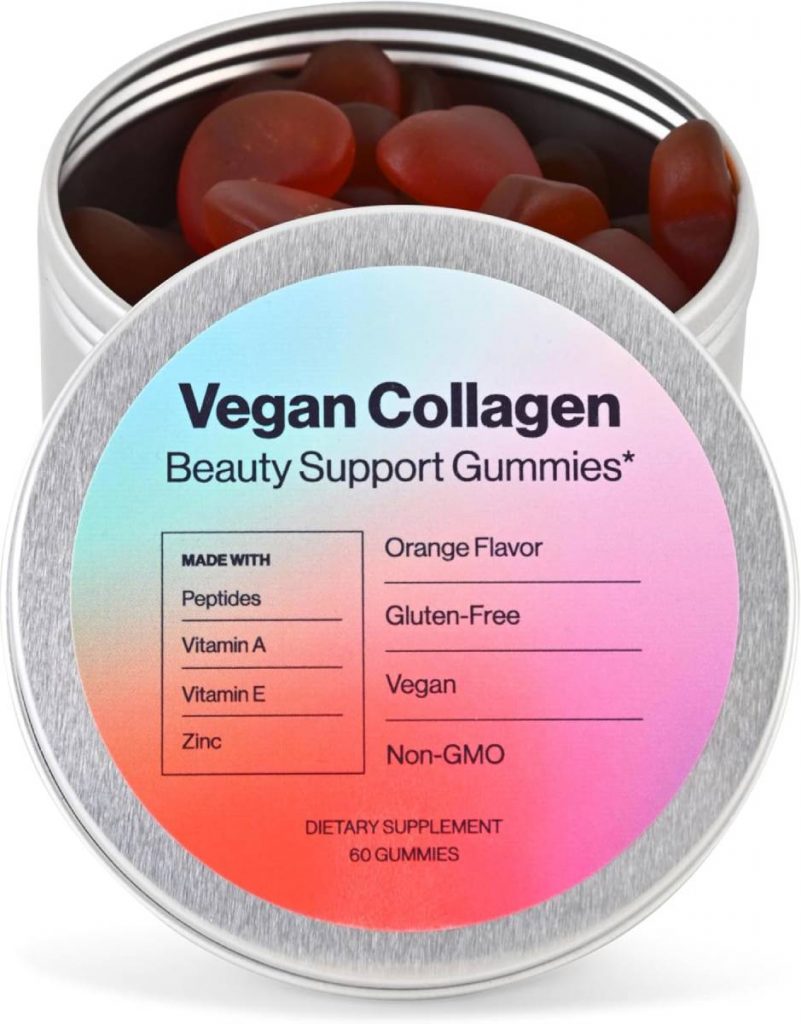
Pure Synergy Organic Multivitamin
This organic multivitamin is made from over 60 whole food concentrates and botanical extracts. It comes in a glass bottle. The product is certified organic and uses no fillers or artificial ingredients.
Size: 120 tablets
Dosage: 4 tablets daily
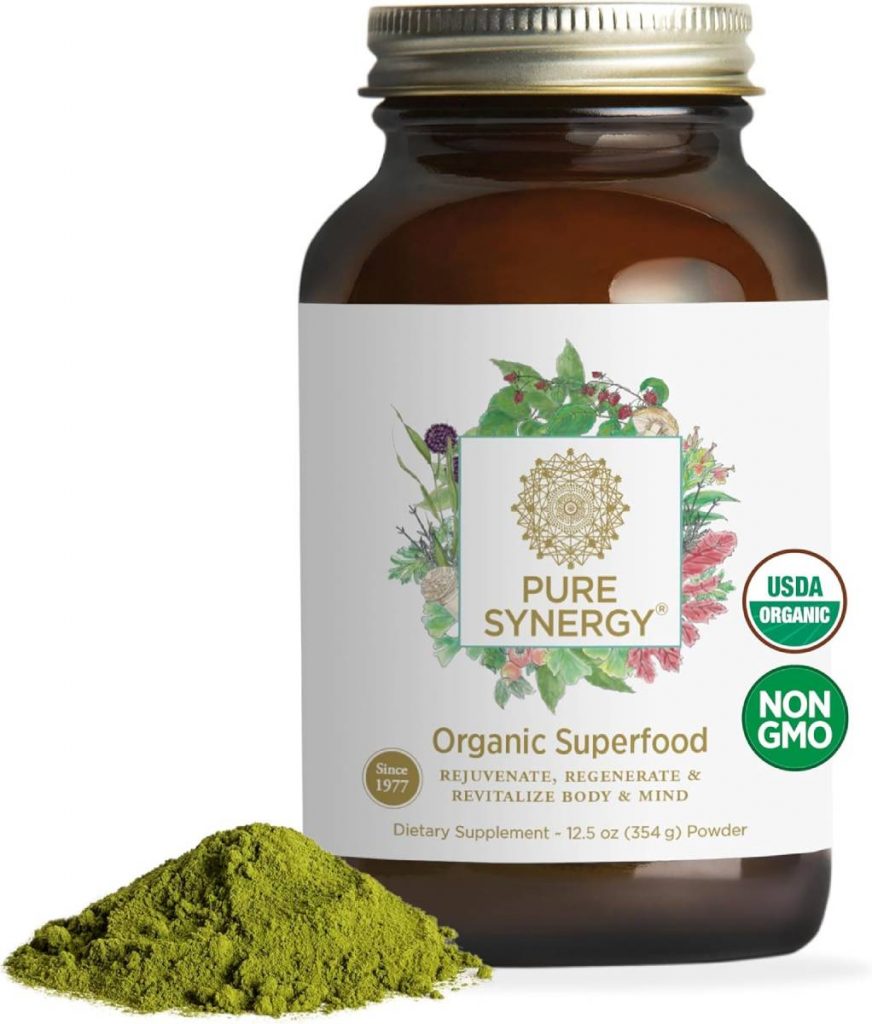
Form Superblend Protein
This plant-based protein powder comes in a plastic-free pouch. Each pouch contains 520g of powder, providing approximately 13 servings. The recommended dosage is 40g (2 scoops) daily, mixed with water or plant-based milk. In addition to protein, it contains 12 superfoods, probiotics, and digestive enzymes.
Size: 520g powder
Dosage: 2 scoops daily
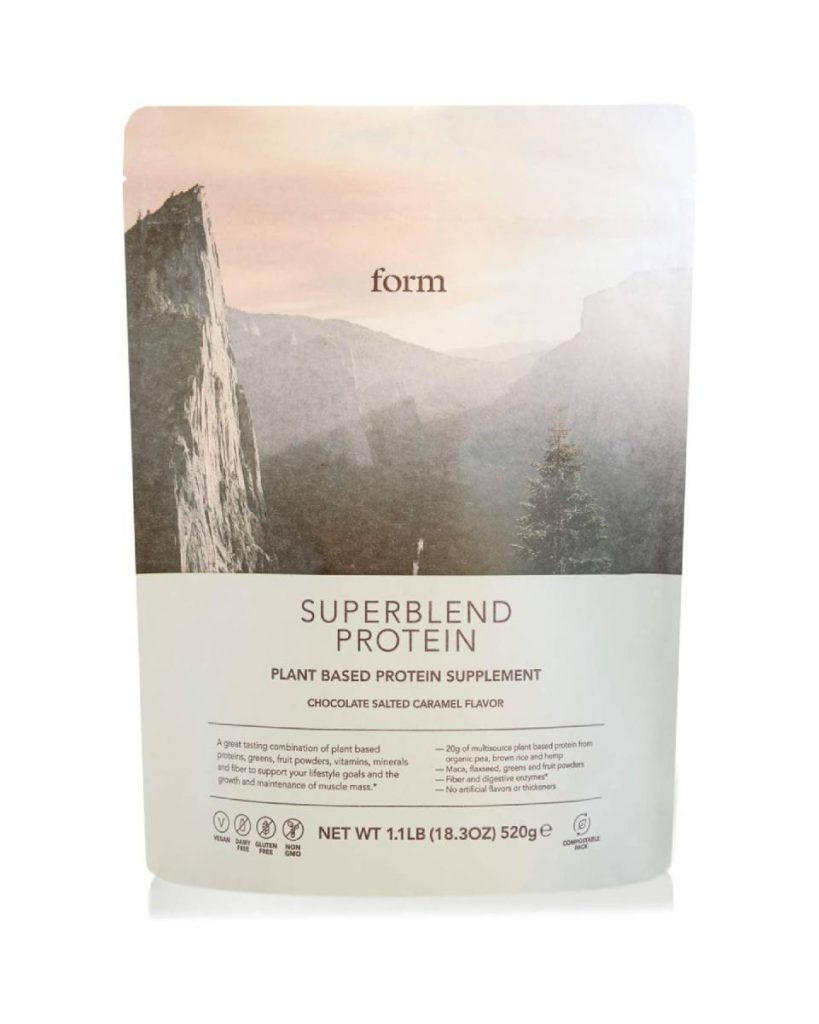
Tips for a Zero-Waste Vitamin Routine
- Buy in bulk: Opt for larger containers to reduce overall packaging waste.
- Choose glass or metal containers: These materials are infinitely recyclable.
- Look for compostable packaging: Some brands offer vitamins in compostable pouches or containers.
- Recycle properly: If you must use plastic bottles, ensure they’re cleaned and recycled correctly.
- Make your own: Consider making your own supplements using whole food ingredients when possible.
If you buy in bulk, you can easily organize your recommended daily doses in a round vitamin organizer or a rectangular vitamin box, both made from bamboo wood.
Choose zero-waste vitamins and incorporate more nutrient-dense foods into your diet to maintain your health while minimizing your environmental impact. Remember, every small step towards reducing waste counts in creating a more sustainable future.

